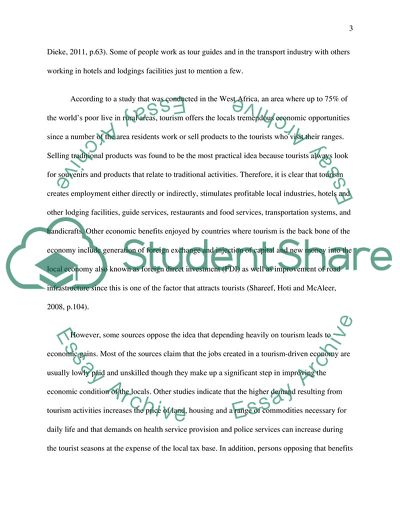Cite this document
(Benefits for Countries with Tourism-Dependent Economies Outweigh the Coursework Example | Topics and Well Written Essays - 1750 words, n.d.)
Benefits for Countries with Tourism-Dependent Economies Outweigh the Coursework Example | Topics and Well Written Essays - 1750 words. https://studentshare.org/tourism/1832251-critically-evaluate-the-claim-that-the-benefits-for-countries-with-tourism-dependent-economies-outweigh-the-negative-effects
Benefits for Countries with Tourism-Dependent Economies Outweigh the Coursework Example | Topics and Well Written Essays - 1750 words. https://studentshare.org/tourism/1832251-critically-evaluate-the-claim-that-the-benefits-for-countries-with-tourism-dependent-economies-outweigh-the-negative-effects
(Benefits for Countries With Tourism-Dependent Economies Outweigh the Coursework Example | Topics and Well Written Essays - 1750 Words)
Benefits for Countries With Tourism-Dependent Economies Outweigh the Coursework Example | Topics and Well Written Essays - 1750 Words. https://studentshare.org/tourism/1832251-critically-evaluate-the-claim-that-the-benefits-for-countries-with-tourism-dependent-economies-outweigh-the-negative-effects.
Benefits for Countries With Tourism-Dependent Economies Outweigh the Coursework Example | Topics and Well Written Essays - 1750 Words. https://studentshare.org/tourism/1832251-critically-evaluate-the-claim-that-the-benefits-for-countries-with-tourism-dependent-economies-outweigh-the-negative-effects.
“Benefits for Countries With Tourism-Dependent Economies Outweigh the Coursework Example | Topics and Well Written Essays - 1750 Words”. https://studentshare.org/tourism/1832251-critically-evaluate-the-claim-that-the-benefits-for-countries-with-tourism-dependent-economies-outweigh-the-negative-effects.


